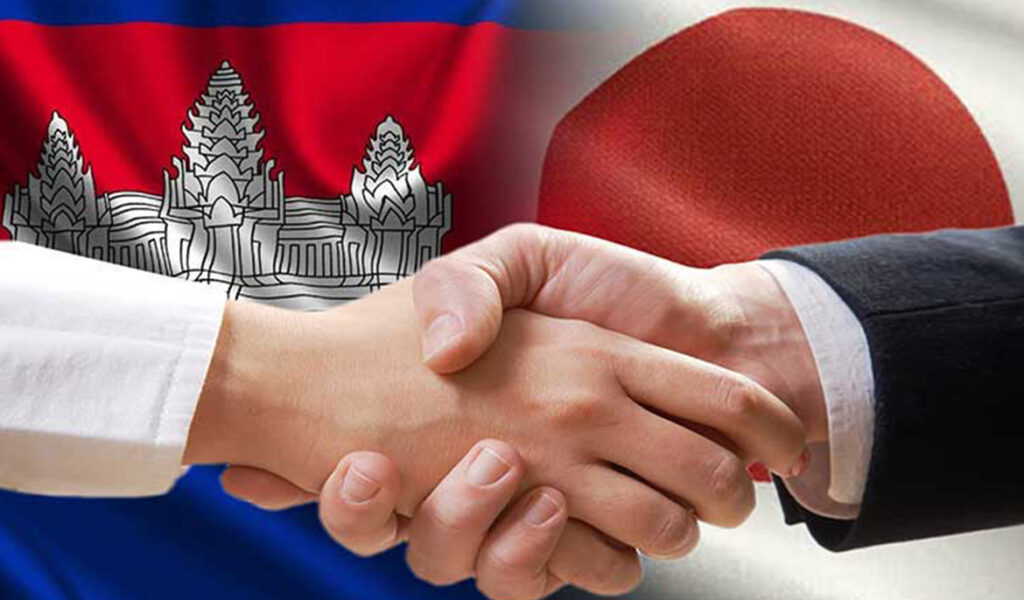The relationship between Cambodia and Japan exemplifies a genuine heart-to-heart connection, defined by mutual respect, trust, and a shared vision and interests.
Marking the 70th anniversary of their formal diplomatic ties last year, both countries elevated their relationship to a ‘comprehensive strategic partnership’. This underscores the deep trust and comprehensive cooperation between the two nations.
The recent official visit of Japanese Foreign Minister Yoko Kamikawa to Cambodia demonstrated the robust political will and concrete efforts to achieve tangible outcomes from this partnership.
Japan’s emphasis on social infrastructure development, such as water treatment and supply in Phnom Penh, highlights its commitment to improving the quality of life in Cambodia. Moreover, Japan’s interest in deepening cooperation in digital transformation, cybersecurity, maritime security, and humanitarian demining efforts signifies a forward-looking and multifaceted partnership.
Japan has been instrumental in Cambodia’s journey towards peace and development. It has played a critical role in peacemaking, peacekeeping, peacebuilding, and national reconstruction.
Japan is undeniably Cambodia’s most trustworthy friend. The Cambodian people hold a deep affection for Japan, reflecting a truly heart-to-heart relationship. Despite the ever-changing geopolitical landscape, our trust-based and people-centered bilateral partnership remains strong and resilient.
Both countries have worked closely together to navigate international geopolitical turbulence and to strengthen open and inclusive multilateralism and a rules-based international order.
Cambodia was the first Southeast Asian country to support Japan’s Free and Open Indo-Pacific initiative, recognizing its inclusivity and complementarity with ASEAN-led regional initiatives.
Notably, Cambodia welcomes all regional and international efforts that contribute to peace and prosperity without targeting any third country, thereby strengthening the ASEAN-led regional architecture.
Our economic ties are also flourishing, with bilateral trade volume reaching $1.8 billion in 2023. Cambodian exports to Japan totaled $1.17 billion, marking a 2% increase. Japan is our fifth-largest trading partner.
Japan ranks as the fourth-largest investor in Cambodia, with investments in finance, construction, manufacturing, and real estate. Since 1994, Cambodia has hosted 210 Japanese investment projects totaling $3.1 billion.
Educational and cultural cooperation between our countries is remarkable. Japan has provided numerous scholarships to Cambodian students, whose contributions to socio-economic development in Cambodia, whether in the public or private sector, are invaluable.
Human capital development is a top priority for the Cambodian government, and Japan’s competitive advantage in technology and skill development aligns perfectly with our goals.
Japan’s strength in Science, Technology, and Innovation diplomacy can be further leveraged to advance Japan’s soft power in Cambodia.
Japan has also played a crucial role in preserving Cambodia’s historical and cultural heritage, from the Angkor temple complex to Preah Vihear and Sambor Prei Kuk temples.
Japan has played a crucial role in International Coordinating Committee for the Safeguarding and Development of the Historic Site of Angkor (ICC-Angkor) and ICC-Preah Vihear. These cooperation mechanisms are the successful model in partnership building, resource mobilization, and knowledge sharing.
Individuals like Professor Yoshiaki Ishizawa, former President and Director of the Sophia Asia Center for Research and Human Development of Sophia University, have made significant contributions to the preservation and restoration of these heritage sites.
Looking ahead, both countries should invest more in social infrastructure development, such as water treatment and supply projects and healthcare infrastructure especially in rural areas.
Gender-inclusive and gender-sensitive infrastructure development should be further promoted.
Improved healthcare infrastructure will ensure that even the most remote areas have access to quality medical care. Japan’s experience and technological advancements in the medical field can greatly contribute to the development of a robust healthcare system in Cambodia.
In the realm of digital transformation, Japan can assist Cambodia by offering extensive training programs focused on digital start-ups and innovation. These training programs should cover a range of critical areas, including digital literacy, entrepreneurship, technology management, and advanced IT skills.
By doing so, Japan can help cultivate a new generation of Cambodian entrepreneurs and tech professionals who are well-equipped to lead the country’s digital transformation.
Social innovation, with a particular emphasis on supporting small and medium-sized enterprises (SMEs) in building their innovation capacity, represents a promising area for cooperation between the two nations. SMEs are the backbone of Cambodia’s economy, and enhancing their ability to innovate can drive economic growth and create new job opportunities.
Japan should play a pivotal role in supporting Cambodia’s transition to green energy, particularly through the development of solar farms to supply energy to industries. For this to be effective, the Cambodian government needs to implement regulations that permit renewable energy producers to sell directly to factories, thereby ending the monopoly of Electricite du Cambodge (EDC).
Presently, there is considerable interest from the private sector in investing in solar energy. However, they encounter significant structural constraints due to existing rules and regulations.
Addressing these barriers will be crucial to unlocking the potential of renewable energy investments and ensuring a sustainable energy future for Cambodia.



